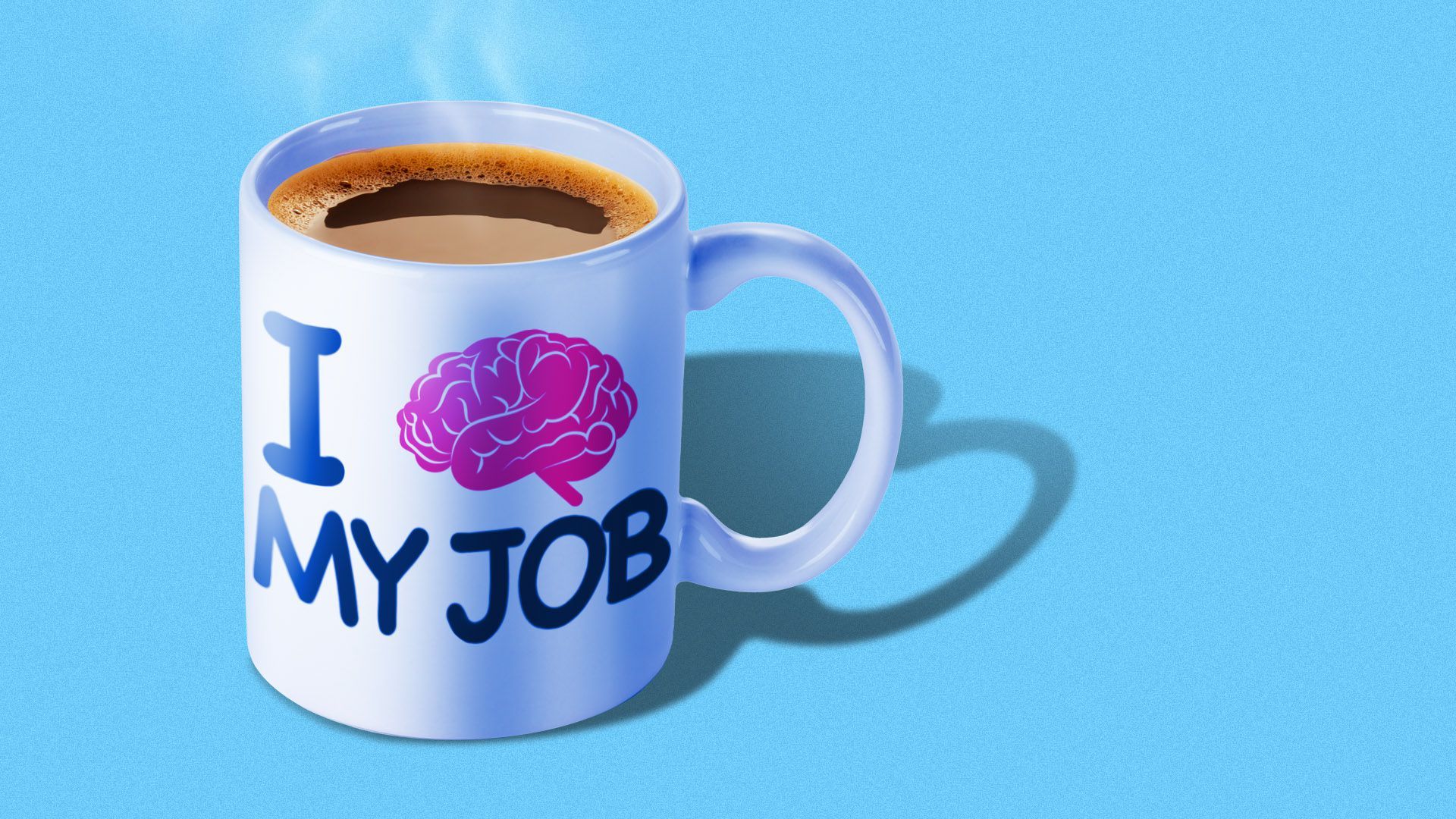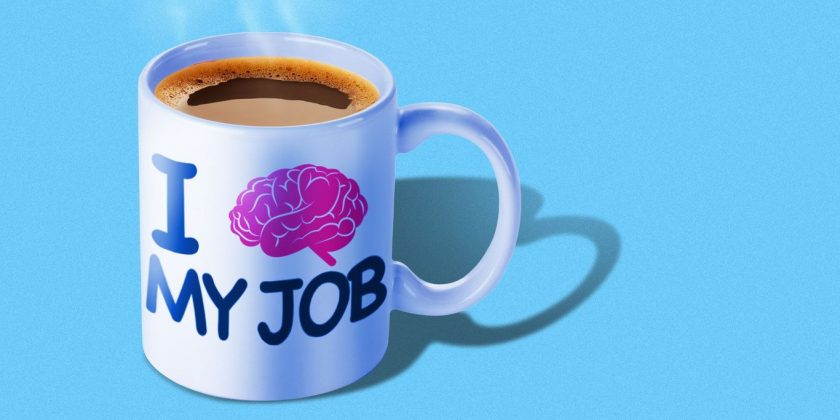
Illustration: Sarah Grillo/Axios
Employees' mental health is quickly becoming a top concern for companies as they try to hold on to workers through the pandemic.
Why it matters: The firms that confront mental health are poised to win the war for talent.
"These days there are worker shortages everywhere," says Chris Swift, CEO of The Hartford, a financial services and insurance company. Mental health is a massive contributor to that, he says.
What's happening: The pandemic has dragged on, and people are dealing with even more loss and isolation — at the same time that America's opioid crisis has gotten worse. Burnout and addiction are seeping into the workplace.
- Despite the fact that we've gotten used to pandemic-era living, workplace burnout is rising. 44% of workers say they feel fatigued on the job, up from 34% in 2020, per a study conducted by the human resources consulting firm Robert Half.
- Drug overdose deaths spiked 30% in 2020 — to nearly 100,000 — and the bulk were opioid overdoses, Bloomberg reports. The deaths and drug addictions are contributing to the overall worker shortage.
It's harming workplaces.
- A whopping 52% of U.S. employers say they are “experiencing significant workplace issues” with substance misuse or addiction by employees, according to a new survey from The Hartford. That's up from 36% in March 2020.
- 31% of U.S. employers say workforce mental health is having a severe or significant financial impact on the company, up from just 20% in March 2020.
Employers can help by providing resources, like mental health days and online therapy sessions. But middle managers must also play a key role, experts say.
- Managers should regularly check in with workers and should themselves be responsible for fostering an environment in which workers feel comfortable discussing personal problems, Kelly Greenwood and Natasha Krol of the workplace mental health advocacy nonprofit Mind Share Partners write in the Harvard Business Review.
But, but, but: Helping workers is not so simple. 72% of U.S. employers say stigmas associated with mental health and addiction are keeping workers from seeking help, per The Hartford's study. The more we talk about it, the faster the stigma goes away, Swift says.
What's next: As workforces transition to remote or hybrid, it'll be even more essential for managers to check in on employees' mental health, says Bryan Hancock, who leads McKinsey's global talent practice.
- Without chance encounters at the water cooler, we can slip into the habit of only discussing work matters with colleagues. Managers will have to explicitly schedule time with their workers to ask how they're doing.
Source: Read Full Article
